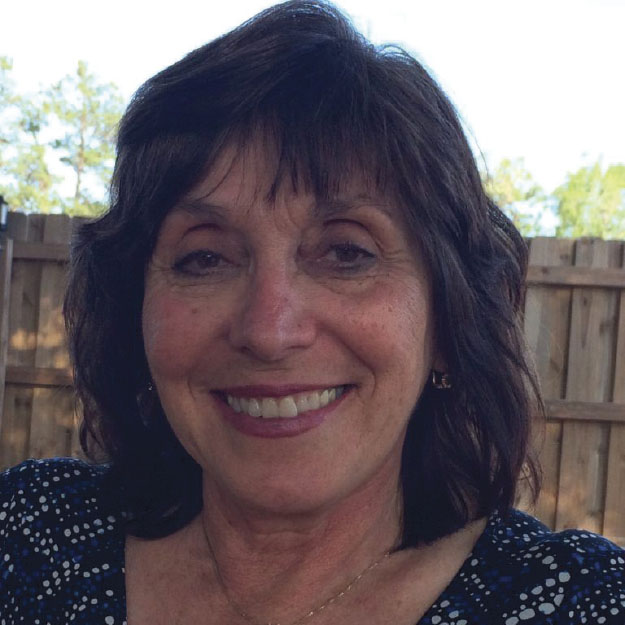By Maya Levkovitz, Linguistics Undergraduate Society

Dr. Diana Boxer has been a staple of the University of Florida Linguistics Department since before it was even a department. As an expert in sociolinguistics, gender and language, discourse analysis, and language acquisition, she redefined and broadened the focus of linguistics education at UF, paving a path for future generations of UF students to gain a fuller understanding of how the study of linguistics fits into our world. Before she retires from the department this year, we wanted to tell her story.
Dr. Boxer was born in a displaced persons’ camp in post-World War II Germany, immigrating to the United States with her family as a baby. She credits her experience as a child of Yiddish-speaking immigrants as a major reason why she found an interest in sociolinguistics:
“I grew up in a multilingual family, as my parents were immigrants and Holocaust survivors. I noticed from a young age when my parents were speaking that they were doing things that were considered ‘inappropriate,’ such as talking about money, which I later understood to be relevant to pragmatics. We study things close to our backgrounds, so sociolinguistics was only natural.”
Despite her profound contributions to the field of linguistics, Dr. Boxer’s educational journey did not start there. She started her career in language education and literature, spending time in Jerusalem teaching in a mechina, an educational program generally focused on language learning. Upon her return to the United States, she pursued her master’s degree in Boston while teaching high school Spanish. Eventually, however, Dr. Boxer said her interests “switched from the literature to the language,” and she pursued her PhD in educational/applied linguistics at the University of Pennsylvania. After completing the degree, she was offered a position to teach for UF’s nascent Linguistics program, and in 1992 she began her nearly 30 years of transforming the linguistics experience at UF.
When she started at UF, Dr. Boxer primarily focused on second language acquisition. She was the Associate Director of the English Language Institute. By 2000, she had already managed to break down several barriers for sociolinguists, and, more importantly, for women, when she began her time as Chair of the Linguistics program. As chair, she helped bring the discipline of psycholinguistics to UF. Later, she helped lead the charge to formalize the program as a department, an effort that proved successful in 2010. Since then, Dr. Boxer has been the leading educator in the disciplines of sociolinguistics, discourse analysis, and gender and language for the department.
Even after playing such a major role in progressing the disciplines of sociolinguistics and discourse analysis, Dr. Boxer has hopes for the future of her field to move beyond its current direction. She believes a critical approach to discourse analysis can be a tool for improving our world:
“Critical discourse analysis is becoming increasingly important in the world, even if it hasn’t spread so much to the US. People are finally realizing that there shouldn’t just be baseline sociolinguistics descriptive analysis, but that we can use our tools to work on the ills of the world; it can help us understand how our language causes harm. We can’t just describe, but we should prescribe.”
Dr. Boxer is far more than just an instructor; she is a mentor responsible for shaping the interests of and inspiring her students. She recognizes the potential that young students bring into the field. Despite all her work in the field, she knows she can still learn from her students. Even in retirement, her legacy as an educator and leader will impact future UF linguistics students and sociolinguists for years to come.